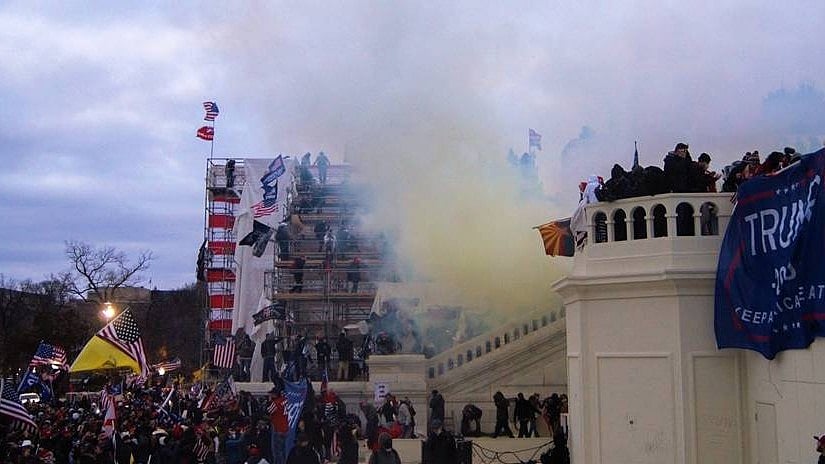World
BBC chief, top news executive quit after outcry over edited Trump speech
Tim Davie and Deborah Turness resign amid backlash over misleading Panorama edit of 6 January remarks

The BBC plunged into its gravest editorial crisis in years on 10 November as Director-General Tim Davie and BBC News CEO Deborah Turness resigned, bowing to intense pressure over the broadcaster’s alleged misleading edit of former US President Donald Trump’s 6 January 2021 speech.
The edited clip — aired in a Panorama documentary last year — omitted Trump’s call for supporters to protest “peacefully and patriotically”, sparking accusations of distortion and political bias.
The controversy erupted after The Daily Telegraph published a clip appearing to splice Trump’s words into a more inflammatory sequence, showing him saying: “We fight. We fight like hell,” directly after urging supporters toward the Capitol. In reality, Trump made the “fight like hell” comment nearly an hour later, unrelated to the Capitol march.
It is important to note that on 6 January 2021, thousands of Trump supporters stormed the US Capitol in Washington, D.C., as Congress met to certify Joe Biden’s presidential victory. Fueled by Trump’s claims of election fraud, rioters broke through security barriers, assaulted police, vandalised offices, and forced lawmakers to flee or shelter in place.
The chaos halted the certification process for several hours. Five people died during or shortly after the attack, and hundreds were later charged with federal crimes. The event is widely regarded as one of the gravest attacks on American democratic institutions in modern history.
Meanwhile, Davie, in a letter to staff, said stepping down after five years was “entirely my decision,” adding: “Mistakes have been made and as director-general I have to take ultimate responsibility.” Turness said the fallout had reached a point where it was “causing damage to the BBC,” adding that leadership requires accountability. She rejected claims that BBC News is institutionally biased.
The resignations came after the Telegraph published excerpts of a confidential standards review by former adviser Michael Prescott, which criticised not only the Trump edit but also BBC reporting on transgender issues and alleged anti-Israel bias in its Arabic service.
Published: undefined
Trump reacted triumphantly on Truth Social, thanking the Telegraph for exposing “corrupt journalists,” calling the edit “a terrible thing for Democracy!” White House press secretary Karoline Leavitt posted a mocking “shot and chaser” meme on X juxtaposing Trump’s attack with Davie’s resignation.
Broadcaster under pressure
The BBC, now 103 years old and funded by a compulsory £174.50 annual licence fee, faces constant scrutiny over impartiality. Conservatives routinely accuse it of a left-leaning bias, while liberals claim it has tilted right. Coverage of the Israel–Hamas war has also fuelled criticism: in February, the BBC pulled a Gaza documentary after it emerged its child narrator was the son of a Hamas official.
Opposition Conservative leader Kemi Badenoch claimed the saga confirms “institutional bias” at the BBC and demanded sweeping cultural reform. Meanwhile, Labour media minister Lisa Nandy thanked Davie for his service and said the government would support the broadcaster in maintaining its central role in public life.
Turness and Davie will stay temporarily while an orderly transition is arranged. Their departures open a deeply uncertain chapter for one of the world’s most influential public broadcasters — one now under sharper political and public scrutiny than ever.
With inputs from AP
Published: undefined
Follow us on: Facebook, Twitter, Google News, Instagram
Join our official telegram channel (@nationalherald) and stay updated with the latest headlines
Published: undefined